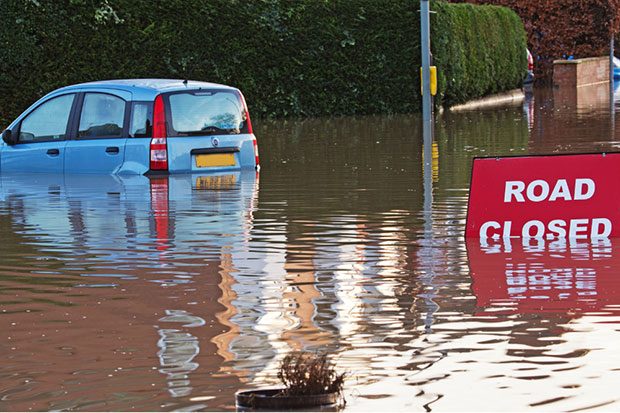
The Environment Agency and Natural Resources Wales are responsible for providing flood warning information to people at risk of flooding in England and Wales. One of the main ways we do this is by sending free automated voice calls. We’ve recently improved this part of the service by switching to Amazon Polly.
Calling on the telephone
Since the very beginning of our flood warning service, we have provided direct warnings to customers via automated telephone calls. Telephone alerting is still the most common method to receive flood warning information - we have over 2 million telephone numbers registered across England and Wales.
To SSML and back
For nearly a decade, local Duty Officers around the country would add real-time flooding information text into the flood warning system to send to users. The system took the text, and converted it into Speech Synthesis Mark-up Language (SSML) - this is a universal standard for converting text-to-speech.
In 2018, we converted over 122 million characters of text, resulting in over 2000 hours of audio.
The system had various limitations including:
- the voice sounding unnaturally electronic with often poor pronunciation and cadence
- we had to maintain a large custom dictionary to substitute problem words (usually place names) into phonetic equivalents – this involved a large overhead with local teams having to review and update the dictionary regularly to ensure that these pronunciations are accurate
- we had to pay an ongoing license fee to use the text-to-speech software
Ring in the change
The advent of machine learning and specifically neural networks has completely changed the text-to-speech services industry. Therefore we decided to look at alternatives to our old system that could provide:
- clear speech and pronunciation
- good cadence and pacing
- a high level of availability and reliability
- support for custom pronunciation for place names in England and Wales
- converting English text into English speech, with an English accent
- converting Welsh text into Welsh speech, with a Welsh accent
- near-instant return of the speech audio
- converting text to speech once and using the audio multiple times in voice messages and our Interactive Voice Response (IVR) telephone service
Pollymath
After extensive testing with a variety of possible suppliers - converting thousands of sample clips from our existing flood warning system for user testing - we decided that Amazon Polly best met our requirements. We have seen a big difference moving over to Amazon Polly. Here are just a few of the benefits:
Sounds clearer and better
Above all else, it just sounds better - the voice is now clearer than it was before. Amazon Polly uses Neural Text-to-Speech technology to provide natural human like text-to-speech voices. Local teams reviewed clips to see how well Amazon Polly handled local place name pronunciations in a variety of different voices. Through this user testing, we decided to use the “Amy” voice for English messages and “Gwyneth” for Welsh messages. You can hear for yourself below.
Old style flood warning message:
New style flood warning message:
Saves money
We’ve saved taxpayers money by using Amazon Polly. The costs associated with our text-to-speech translation service has dropped from over £40,000 a year to less than £1,000.
Because it converts place names far better than our previous engine, we can cut down our custom dictionaries, lowering the overhead on our local teams.
Future improvements to the service
We’ll see the benefits of any future improvements to the Neural Text-to-Speech technology without any additional changes or investment. We will continue to review feedback on our messages to ensure that we are providing the best service possible. We now have a far more flexible and powerful service that will only get better as the Amazon Polly neural network technology evolves and improves.
You can sign up to our free flood warning service on GOV.UK, or by calling Floodline on 0345 988 1188.
Recent Comments